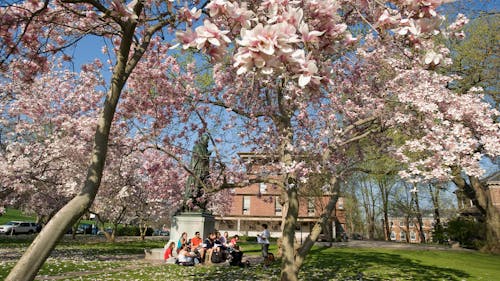Rutgers administrators give update on plans for in-person classes in fall

Rutgers—New Brunswick Chancellor Christopher J. Molloy and Provost and Executive Vice Chancellor for Academic Affairs Francine Conway sent a University-wide email yesterday updating students on planning for the Fall 2021 semester amid the ongoing coronavirus disease (COVID-19) pandemic.
The Daily Targum previously reported University President Jonathan Holloway intends on slowly bringing all students, faculty and staff back to campus in the fall, with increased capacity at residence halls and the resumption of on-campus activities.
“While it may be difficult to contemplate a return to in-person teaching, learning and research at this time, the developments around (COVID-19) vaccines make the reality of returning to the Banks promising,” Molloy and Conway said in the email.
Administrators are currently aiming to have in-person experiences for all courses that previously met fully face-to-face, they said.
To do this while still following public health guidelines, Molloy and Conway said administrators are planning to cap in-person student enrollment and reduce classroom seating capacities, offer academic programs with multiple methods of delivering instruction as well as modify the standard class periods to reduce building occupancy and make time for cleaning protocols.
They said the University created a Planning and Logistics Group to work with Institutional Planning and Operations to ensure campus repopulation is carried out safely.
Academic deans and Rutgers administrators will continue working together and providing updates to faculty and staff throughout the planning process, Molloy and Conway said. The University also will update its campus status webpage with updated information for the Fall 2021 semester.
“Rutgers—New Brunswick, like all great residential universities, is built on inquiry-based research, teaching and service, which thrive through face-to-face interactions,” they said. “Restoring these in-person experiences will require our shared commitment and a phased repopulation strategy guided by the availability and roll-out of vaccines.”



